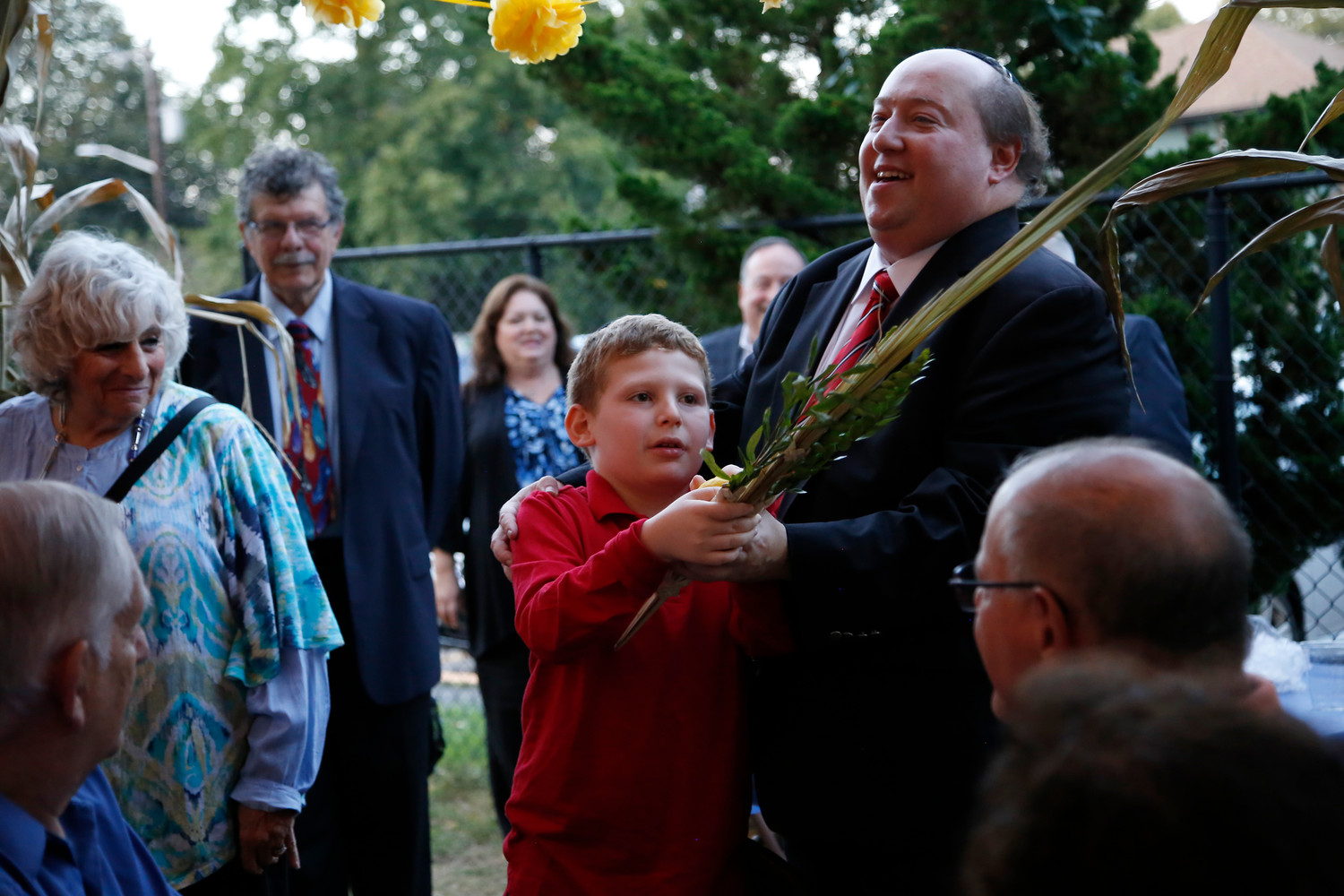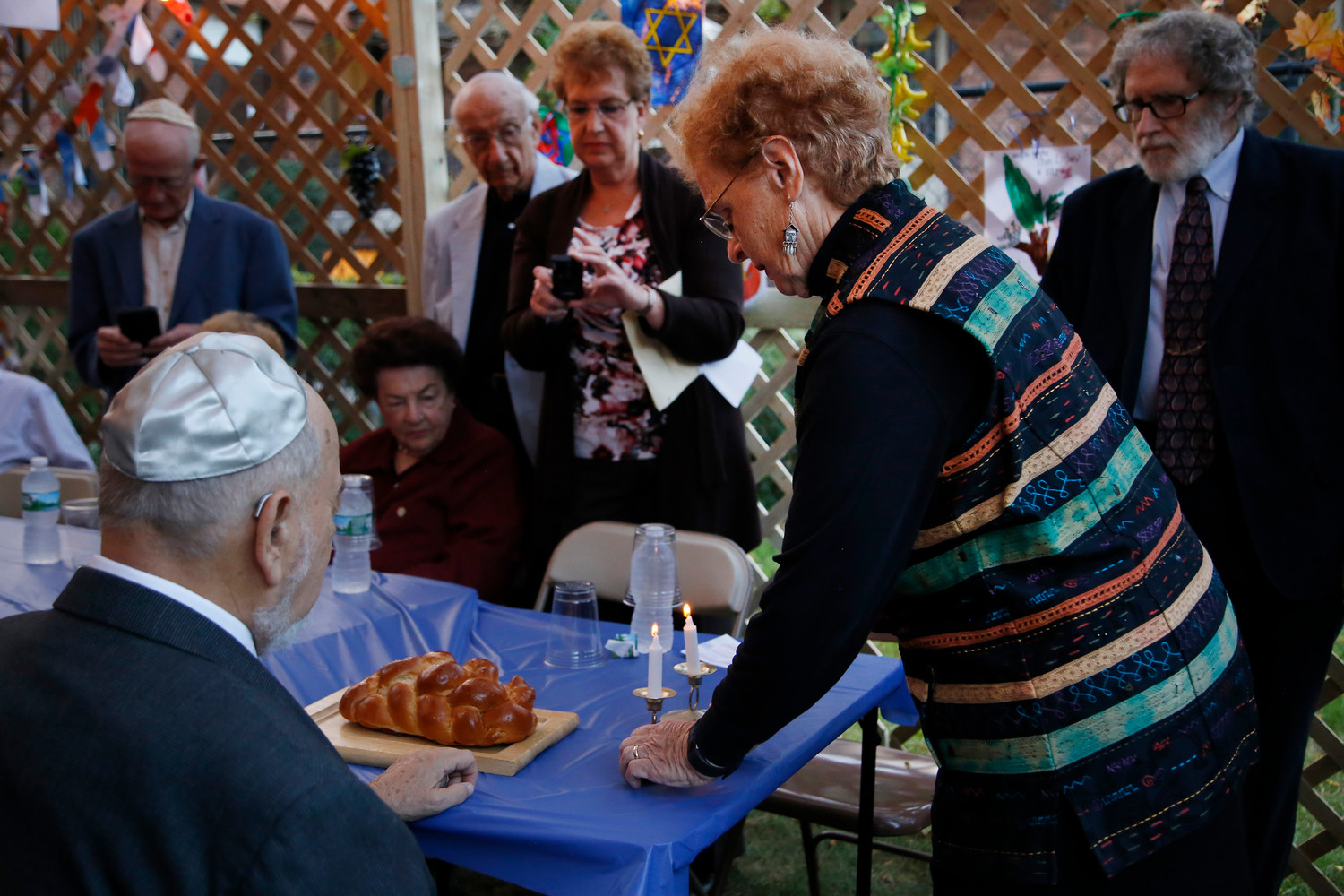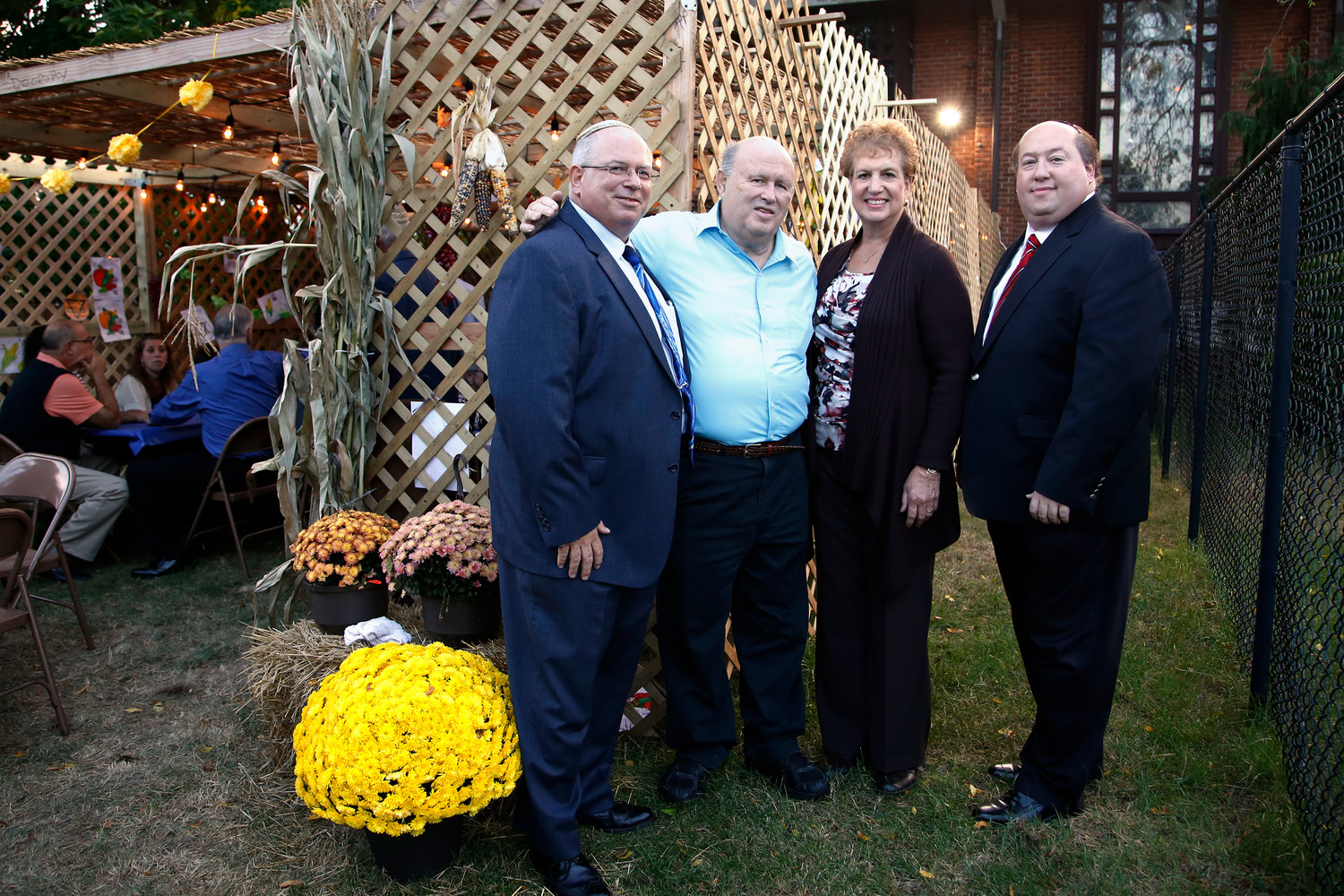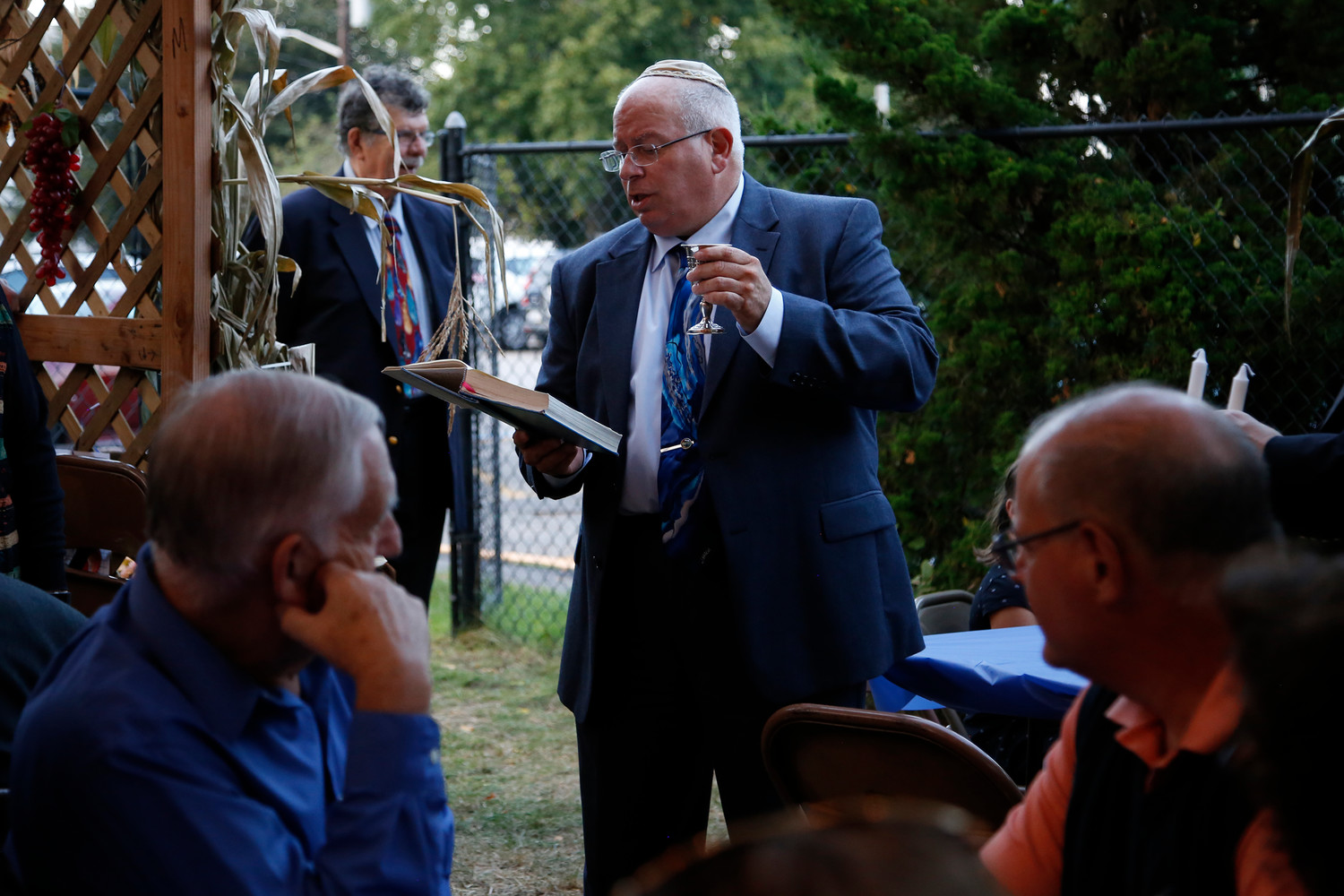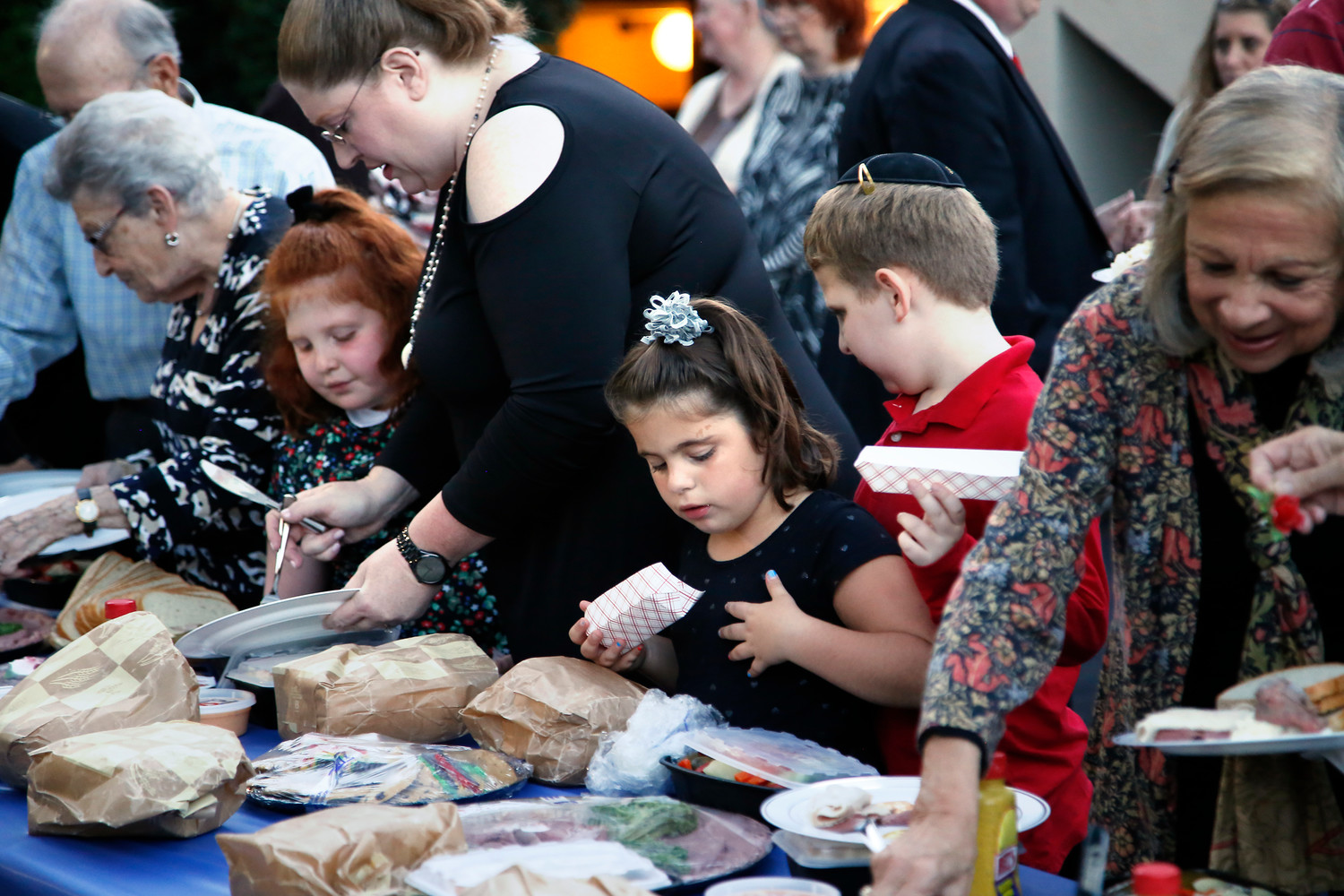Celebrating ‘the time of our happiness’
Members of Temple Beth Am of Merrick and Bellmore enjoyed dinner in their sukkah tent under the stars on Friday night before the Shabbat evening service.
Traditionally called “the time of our happiness,” Sukkot and Simchat Torah are two of the most joyous holidays in Judaism. Sukkot commemorates the nomadic lifestyle lived by the Jewish people for 40 years in the Sinai Desert after the Exodus from Egypt, explained former Herald reporter Yitzchak Carroll.
To commemorate this, Jewish people have a custom of eating all meals during Sukkot in a sukkah, a temporary hut covered by a roof made of organic material, called s’chach in Hebrew. Some people sleep in the sukkah as well.
The sukkah reminds Jews that life in this world is finite, and people are just transients in a temporary, physical environment. Jews must maximize their time ion this planet, as a person only leaves it with the good deeds he or she performs — not with any physical possessions or material wealth.
Sukkot also celebrates the harvest season, and Jews do so with an etrog — a citrus fruit, along with a lulav — a palm branch, as well as twigs from a willow branch and a myrtle bush — called aravot and hadassim, respectively. They are collectively known as the “four species,” and a blessing is made over them daily, except for the Sabbath. They are shaken to symbolize God’s omnipresence.
Simchat Torah, considered the most joyous day of the Jewish calendar, is celebrated immediately after Sukkot. The day marks the completion of the annual cycle of public readings of the Five Books of Moses. Jews of all ages jubilantly sing and dance with Torah scrolls during both the evening and morning of the festival, celebrating the significance of the sacred text.
Temple Beth Am’s Simchat Torah and Yiskor service will be held on Thursday at 10:30 a.m. The Shabbat evening service will be held on Friday at 8:15 p.m., and the morning Shabbat service on Saturday, at 10:30 a.m.

